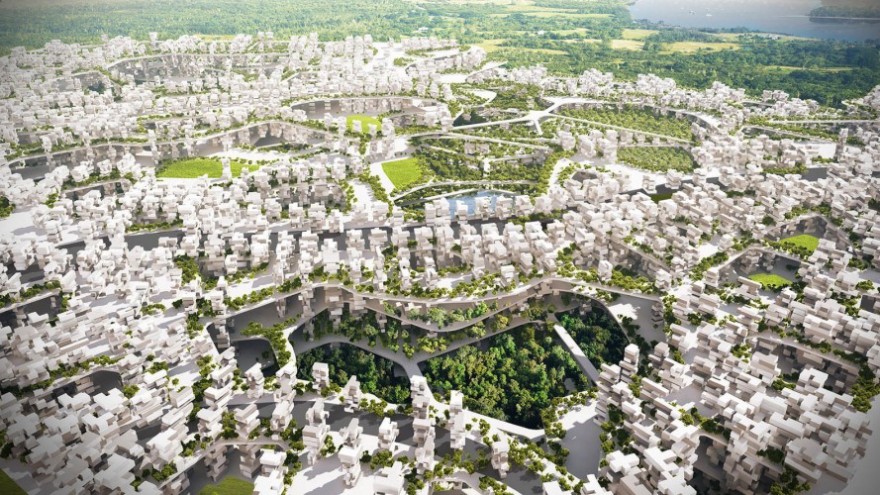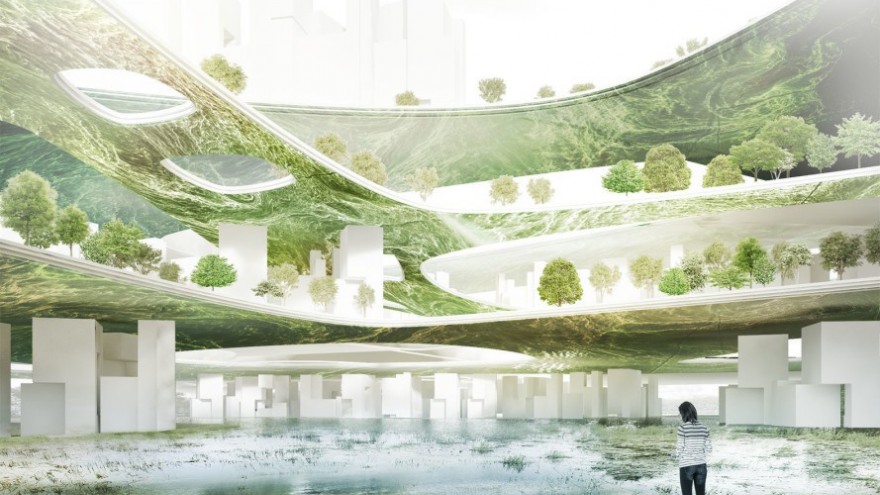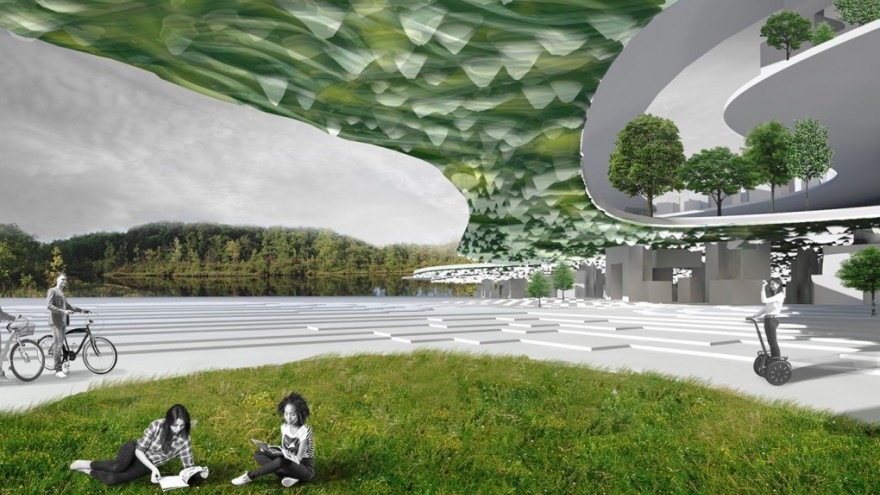There has been much debate about the validity of the self-proclaimed micro-nation of Liberland. But Czech Libertarian politician and president of the sovereign nation Vít Jedlička is already considering urban development in the area. In October 2015, Liberland launched a global design competition that presented architects with the opportunity to design an entire city from scratch. After an overwhelming response from some of the top firms in the world, a distinguished team of jurors selected RAW-NYC’s layered, algae-powered city.
The interdisciplinary architectural studio based out of New York and Dubai specialises in sustainable urban design solutions on micro and macro scales. Its proposal for Liberland is a mixed-use city made up of various levels that extend below the ground surface in a space-saving technique called inverted archaeology.
“We wanted the city to be built one horizontal layer at a time, where it’s possible to walk everywhere and everything is connected,” said RAW-NYC’s founder Raya Ani. The stackable layout is a fresh approach to urban density, which supports a self-sufficient and integrated city environment.
Sustainability was an important element in the design of the city. This is seen with numerous features including solar panels, green roofs and algae-covered surfaces placed on the underside of buildings to produce green energy. To make sure nothing goes to waste, rainwater-harvesting and biofuel systems have been included in the design, and to adapt to the flood plain environment, parks have been designed to embrace flooding waters.
President Jedlička is now measuring the feasibility of the design but seems confident about the future prospects of the city:
“We will further study upon the first place project to see if and how exactly it could be introduced in reality. When that’s possible, we want to launch a virtual 3D landscape with building models to help people choose a place to live or to invest in.”






